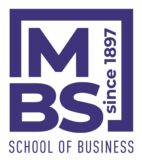Signing of a Major Partnership between the ALTRAD Group and Montpellier Business School
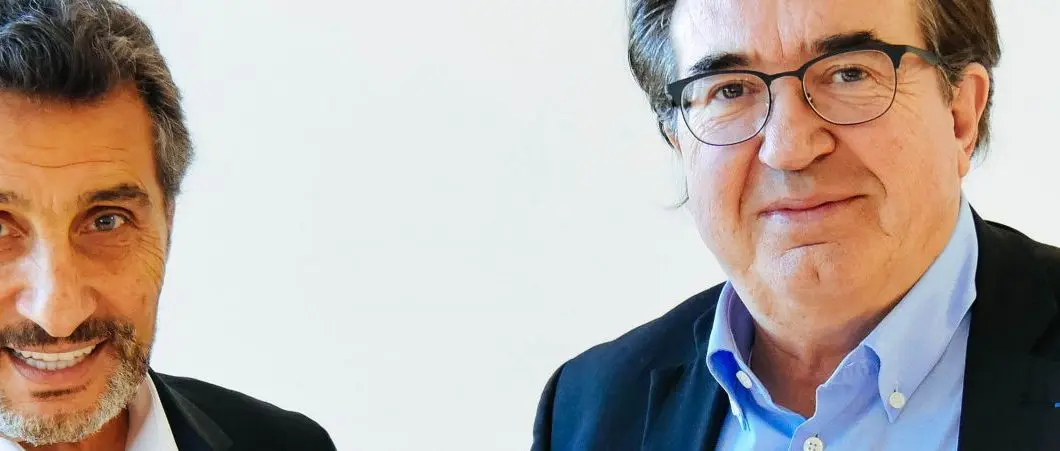
Tuesday, November 21th, Mohed Altrad, President of the ALTRAD Group and Montpellier Hérault Rugby, and Didier Jourdan, Dean of Montpellier Business School, signed a partnership agreement. Montpellier Business School was proud to welcome the ALTRAD Group has its 41st Major Partner.
This partnership reflects the desire to share their values through concrete actions and benefits from their reciprocal expertise on all their activities. Montpellier Business School and the ALTRAD Group agree to work together in positively developing sustainable economic and social development of their environment and of their stakeholders.
Identifying the next Executives staff of the ALTRAD Group amongst the students of Montpellier Business School and developing the apprenticeship on finance-related job positions
Consequently the two partners have decided to set up a privileged treatment and circulation of the ALTRAD Group’s employment opportunities for the benefits of Montpellier Business School’s students. This preferential treatment also includes a specific help from the School by selecting the best candidates who will meet the needs of the ALTRAD group in terms of employment, internships and apprenticeships, particularly in financial analysis.
The partners will also organize activities to promote the ALTRAD brand as well as encouraging financial professions within the ALTRAD groups on campus and to the MBS’ students.
The Dean of Montpellier Business School, Didier Jourdan, declares: “It is a great honor for our school of having, amongst our 41 Major Partner companies, the ALTRAD Group, a French company that has become the world’s leading provider of services industry after a spectacular development that brought his atypical creator, Mr Mohed Altrad, national and international prestigious awards. This strengthened partnership formalizes common values and objectives that combines economic and social development as well as internationally promoting Métropole Montpellier Mediterranean, the Occitanie / Pyrénées-Méditerranée region, and France.”
Mohed Altrad, President of the ALTRAD Group, declares: “We welcome the signing of this partnership, which reinforces the already close and fruitful relationship with Montpellier Business School. It reflects our common desire to contribute to the integration of students through concrete actions, but also to contribute to the economic and social development of the region, both nationally and internationally.”
Proximity and quality relationships on teaching, research, communication and executive education
The ALTRAD Group and Montpellier Business School are also committed to develop a close collaboration on teaching, research, communication and executive education. This collaboration means that Montpellier Business School will be referenced as an executive education provider for the ALTRAD Group on each areas of its expertise: short and long-term executive education programmes, VAE (Validation of the Acquisition of Experience), Executive MBA…
The entry of the ALTRAD Group in the Advisory Board of Montpellier Business School
The ALTRAD Group has joined the Advisory Board of Montpellier Business School. The Advisory board is a high-level monitoring structure on developments in the entrepreneurial world, composed with the heads of the 41 Major Partner Companies of Montpellier Business School, and intended to advise the School on global strategy, international development, educational evolution and positioning on national and international markets.
Jacques Vienne – Grande Ecole Programme through the VAE
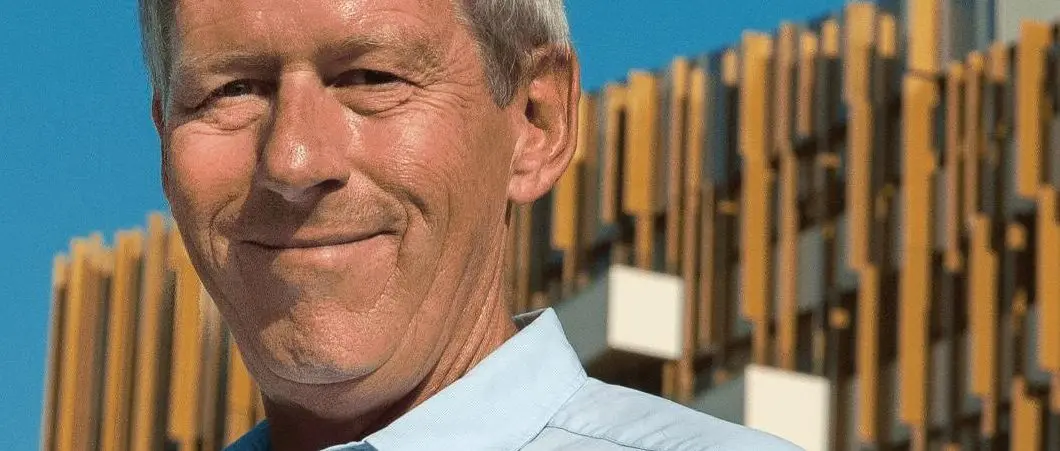
“There was a mismatch between the position I occupied and my basic training.” This is what prompted Jacques Vienne, 53, to use Montpellier Business School’s services. Director of Development for the Frey Group, a commercial urban planning specialist, he has embarked on a process of validation of acquired experience (VAE), which has been particularly the right way to go for him: thanks to this decision, he has obtained a degree in line with his current responsibilities, a second-year Master’s in management.
So a nice consecration for a career nicely led. Jacques Vienne finished his studies by obtaining a university degree of technology (DUT) then he immediately started to work. He has a series of positions of responsibility in commercial urban planning. After 13 years with Decathlon, then two with Bouygues Immobilier in Spain, he was recruited in 2003 by the Frey Group which entrusted him with the development of its Spanish business before adding the southern French sector. There, Jacques Vienne once again made an impression by allowing his group to take charge of the commercial aspect of the vast real estate project “Ode à la mer”, launched by the Montpellier Metropolis. It was on this occasion that he settled in the city: “It was the right time to undertake a VAE approach. Montpellier Business School, in partnership with Les 2 Rives, offered exactly what I was looking for”.
Today, he continues to praise the welcome and professionalism of the Ecole Supérieure de Management’s teams (the Montpellier Graduate School of Management’s teams). “Thanks to them, I understood precisely what VAE and its issues were. I benefited from an effective and personalised coached follow-up, which is fundamental to stay focused on your objectives and an excellent assistance from those who accompanied me”. Jacques Vienne thus draws a more than positive assessment of his decision: “For me, it was a personal challenge and I am reassured because, today, my degrees are well in line with my position. And, even though the question does not even rise for me, it enhances my skills in the job market.”
He chose the MBS post-bac programme: Maxime Perez, High-Level Athlete, answers our questions
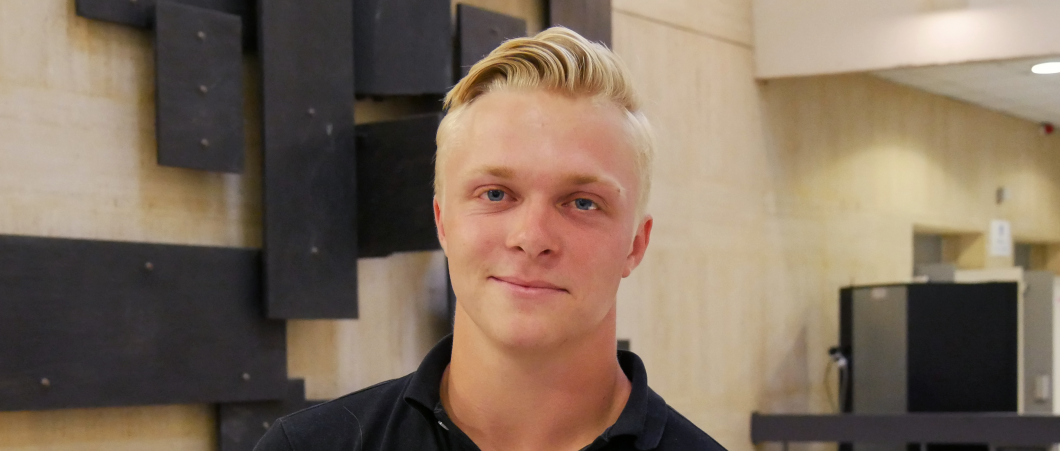
After a baccalaureate in sciences and an attempt at engineering school, Maxime found his path in the MBS Bachelor of International Business Administration programme, which he joined as a first-year. With our specific entrance exam process for High-Level Athletes, and the flexibility it affords them for training and competitions, for the last two years Maxime has been able to proceed with his studies while continuing the sport at which he excels: horse-riding.
When did your passion for horse-riding begin ?
I’ve been on horseback for as long as I can remember! I must have learned to ride before I learned to walk (laughter). Around ten years ago I wanted to go further with my passion, so I started doing jumping competitions. In 2012, I went pro, and two years ago, I joined the French team as a young rider.
How did you make the decision to study in a business school after your baccalaureate ?
At first I was trying to find my path, and I tried first year of engineering school. But it wasn’t for me. Eventually I went toward what inspire me: management, and leadership more specifically. When I found out that MBS had a post-baccalaureate programme, and that it was compatible with being a High-Level Athlete, I didn’t hesitate, especially since it is very well placed on the national and international rankings.
How do you manage to be as much involved in your studies as in your sport ?
All High-Level Athletes in the same situation will tell you it takes a lot of organisation. But above all it takes being passionate about what you’re doing. In the academic realm, it’s easy to tune out if you’re not interested in what you’re learning. But the MBS Bachelor is everything I imagined it would be: lots of practical cases and group projects, which really makes you want to give it your all to succeed. Outside of class, of course I spend every free moment in my stables and at my training. In other words, all morning and night, and all weekend.
What has MBS given you so far ?
MBS has of course let me continue my studies in management without having to miss training or important competitions, which wouldn’t have been the case elsewhere. The school lets me plan and manage my time according to my needs as an athlete. When I’m on the road, I can work remotely on an online platform and avoid getting behind.
What projects are you currently working on, and what do you think is next ?
Currently I’m on a one-year internship before doing my last year in the Bachelor programme. I’m working at the same time on two family projects this year: developing my stables, and founding a business incubator. Two completely different things, but which I’m really invested in! Of course, the goal is to carry out both these projects. In terms of riding, my objective is to be able to finance myself, and – why not? – compete in the 2024 Olympics! Even if it’s an enormous dream.
“Our mission is to contribute to Africa’s development”: focus on the philosophy and goals of MBS Dakar
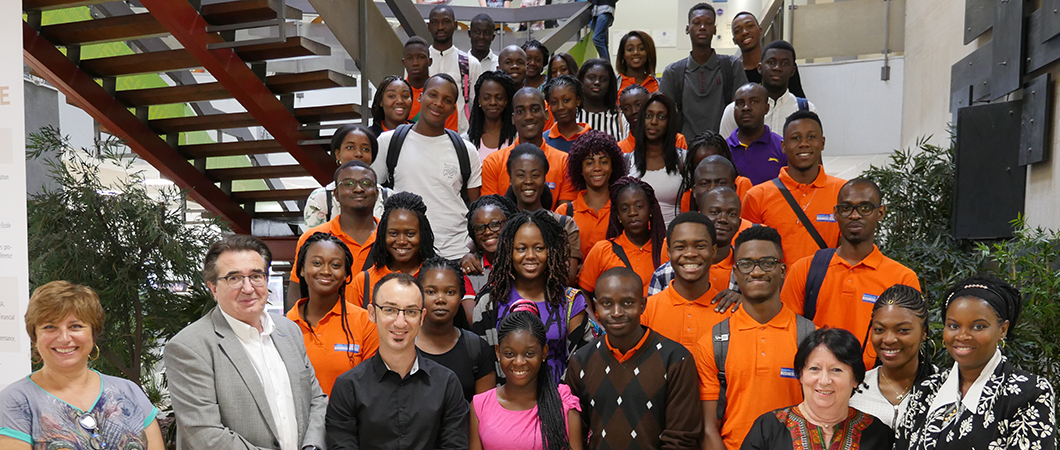
At the start of this 2017-18 academic year, our subsidiary MBS Dakar is celebrating its fourth year! After arriving on campus a few weeks ago, today the sixty-some new students from Senegal, Côte d’Ivoire, and Cameroon are today perfectly at home, whether in the Grande École Master’s programme, the Bachelor’s programme, or the various MSc programmes. Mr Franck Dompietrini, Dean of MBS Dakar, takes stock and looks towards the future of this campus with a humanistic mission.
Could you explain MBS Dakar’s mission and philosophy ?
Our simple and modest goal is to contribute to Africa’s development through teaching and education, not only academically, but also in employability and the values of its future managers and entrepreneurs. And at the same time, to optimise current managers’ overall performance through courses that perfectly meet their current and future expectations and needs in management techniques, operational excellence, customer satisfaction, social management control, digital, etc.
With a view to equal opportunities, the Africa Social Panel has a specific role to play. What is it, exactly ?
The Africa Social Panel grants scholarships so that brilliant and very deserving students can come to MBS, and it lets us perhaps show how often there are misconceptions about Africa, when its qualities – in particular the merit, potential, and general knowledge of its students – are enormous. So we organise one Social Panel in Dakar and another in Abidjan for those who have, of course, passed their entrance exam. The partly are partly made up of the directors of large partner groups, and they decide which students should receive the excellence scholarships by considering entrance exam scores, performance in front of the Social Panel, and an analysis of the social situation. In four years, we’ve awarded 34 excellence scholarships, which cover all transport, housing, and living costs, as well as enrolment fees, of course.
MBS Dakar is now four years old. What are its development perspectives ?
We have several goals. First of all, to recruit even more students from Francophone Africa by intensifying promotion in Senegal, Ivory Coast and Cameroon, and by starting to advertise in new countries like Benin, Togo, Gabon, and Mali, etc. We also hope to start to grow in Anglophone Africa, particularly in Kenya, Nigeria, and Ethiopia. Next, we want to continue to develop the principle of international apprenticeship for large corporations that have a presence both in France and in Africa. An example of this is what we just set up with Air France, and we’re moving ahead on this front with Allianz, BNP, Société Générale, Nestlé, and Decathlon. Last, we’d also love to launch new innovative products, like Summer School, and to think about opening a nursery, a business incubator, to promote entrepreneurship in Africa.
And what about continuing professional development programmes ?
We’re planning to expand our certification-granting and degree-granting continuing education offerings with new modules, new participants and new clients. We’ve already trained over 2,000 managers from large corporations in Africa (AXA, Bolloré, Nestlé, UPS, etc.), and that’s very significant, because 10% of the revenue of these courses is set aside to fund the African excellence scholarships.
Finally, MBS Dakar has recently undergone an organisational change…
Jacqueline Sommovigo, the Dean of MBS Dakar, made the decision to retire after four years of intense efforts, and we can only congratulate her. She’ll be replaced by an associate dean, Aminata Diagne Barre, who will take over after a transition of a few months, and I will take over the leadership myself in direct contact with our Dean, Didier Jourdan, to achieve the ambitious goals we’ve set ourselves.
“Your web footprint is your new business card”: Mathieu Gabaudan teaches e-reputation to our students
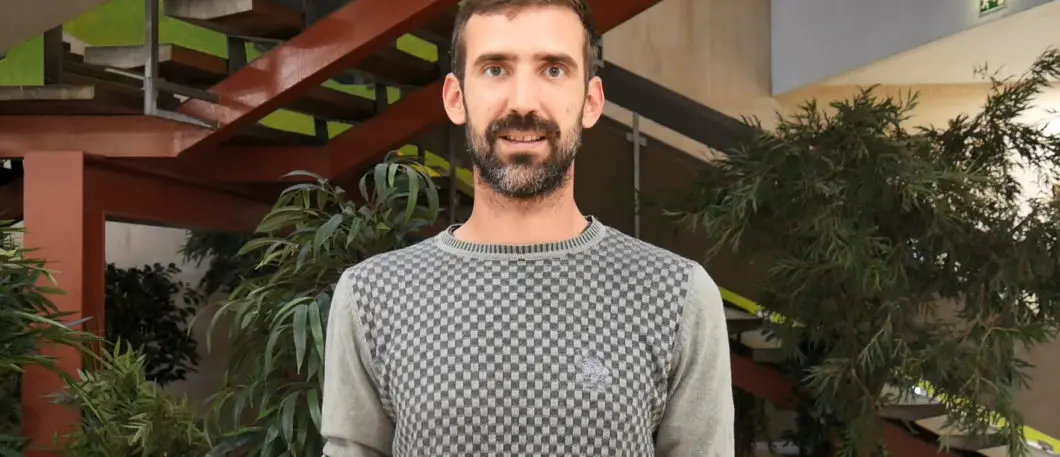
A specialist in innovation marketing and lean management, Mathieu Gabaudan helps businesses and individuals to develop. Gabaudan has been a teacher at Montpellier Business School since 2016, and this year he is offering a class on e-reputation to first-year students in the full-time master’s programme and second-year students in apprenticeship.
Why offer a course on the concept of e-reputation ?
“Today everything happens on the internet. A person or organisation’s reputation is created through websites, forums, social media, blogs, etc., and it’s important for future managers to know how to control what’s being said about them or the company they work for. So, in general I start my course by taking concrete examples and using a search engine to see what comes up of my students, because that’s exactly what recruiters will do. This often provokes a reaction, and they become aware that on the web, nothing is lost, and a pseudonym isn’t enough to mask an identity. So we have to pay attention to what we post on professional networks like LinkedIn, as well as more personal networks like Facebook or Twitter. Today we might say that all networks are used partly for professional reasons.”
But can you learn to control communication on the internet ?
“You have to draw on examples and acquaint yourself with good base reflexes. But the truth is there’s no magic bullet. That’s why I always work on several real and telling cases. In the first part of the course, we talk about businesses reputation. A reputation problem is often part of a marketing problem, so we see how to communicate in this situation. Students must put themselves in the place of the communications manager facing a crisis, and propose some ways to act. Of course, businesses also need the right tools to manage their communication.”
Would you say that not knowing how to control your e-reputation is dangerous ?
“Yes! And personal branding is the second part of my course. You can’t imagine all the information that can be collected on you when you go online and chat, share, etc. If social networks are free, it’s because you’re the product, of course. You’re part of big data! So it’s essential to select the information you want to communicate and think beforehand. What’s important for making the right decisions for communication, and this is not just valid on the internet, is to know how to adapt to each situation and gauge the risk compares to the potential consequences, whether for you or for a company. For example, if I decide to put up a personal and committed comment on a controversial topic, first I have to weigh the pros and the cons in order to know whether it is or it isn’t something I should share on my social networks, because a recruiter could see it, and your e-reputation is what could tip the balance.
Is a good e-reputation also an asset for employability ?
“Definitely. I always tell my students: when you graduate, you have to be able to get the job of your dreams, and you can’t let your e-reputation get in your way. So take care of it, make sure you show a coherent image of yourself, learn how to highlight your strengths, and your personal brand will only be an asset during recruitment.”
Thanks to Mathieu Gabaudan for shedding light on his new ‘e-reputation’ class. He will also meet with other students for classes on ‘mobile marketing’ and ‘recruitment 3.0’ !
Conversation with Magdalena François-Thurin, incoming Dean of Montpellier Business School’s Executive MBA programme.
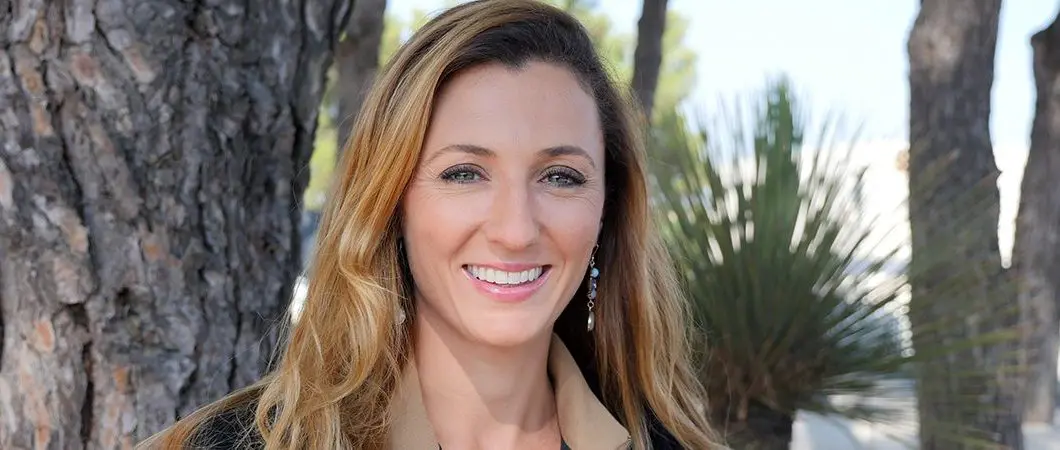
Dean of the Executive MBA programme and the RNCP level 1 certification in ‘Manager of business development or operational unit’, Magdalena François-Thurin has had a very international career, working in consulting in Hong Kong, and then for EDF, first in Bangkok, then in Beijing, and finally in Houston, where she was HR Director for North and South America. After 11 years abroad, she chose to come back to France, and specifically to Montpellier, where she is originally from, to join Montpellier Business School.
What made you want to take over MBS’s Executive MBA programme ?
Education, human development, inclusion, diversity, and social openness are important issues for me and are part of my commitment as a citizen and as a community member. So my ties to MBS lie first in the school’s values, and in particular its value of equal opportunities. In my new colleagues I find the same desire to be involved and a passion for education in the largest sense.
What are the main features that make the MBS Executive MBA programme stand out ?
MBS was one of the first schools in France to offer an Executive MBA. In fact, the programme has been around for 25 years. We graduate classes of 30 to 35 participants who then develop the diversity of their profiles. Our teaching is oriented toward strategy, innovation, and entrepreneurship, and it’s based on individualised support. Moreover, the programme’s transversal project in strategic business auditing enhances their abilities even further. As for the practical cases, they encourage students to acquire skills, because people learn best by doing and sharing. Challenging your opinions and questioning yourself is part of the programme experience, both for me and for the participants. Education is a job that requires responsibility and above all humility.
You’ve now been at Montpellier Business School for a few weeks. How do you envision the future of the Executive MBA programme ?
The programme is focused on employment – one of MBS’s fundamental missions, as France’s largest Grande École for Management in terms of number of work-study students. We’ll stay on this course: supporting participants in their professional goals and preparing them to build the businesses and the economy of tomorrow. We also want to continue to open the programme to the business world that we already work closely with, and open it internationally. The programme is currently one of the few at this level offered in French. There’s no contradiction between this grounding and the fact that we have dense links with the rest of the world and a global vision of the great planetary challenges. Finally, we’re going to continue to enrich the foundation of skills developed with the faculty members in subjects like digital, collaborative management, the liberated company, or critical thinking.
As participants start the new academic year, what can they expect ?
First of all, this year we can show a very diversified recruitment in terms of profiles and sectors of activity. Collaboration, along with the interaction between teachers, participants and companies, will be the core of the programme, and we’ll increase the bridges with MBS’s other programmes and skill centres. The goal of my entire team is to make participants’ eyes shine, because it’s a unique moment for them, a high point in their career, whether they’re at a company or just getting started.
What is behavioural economics, which enabled Richard H. Thaler to win the 2017 Nobel Prize in Economics?
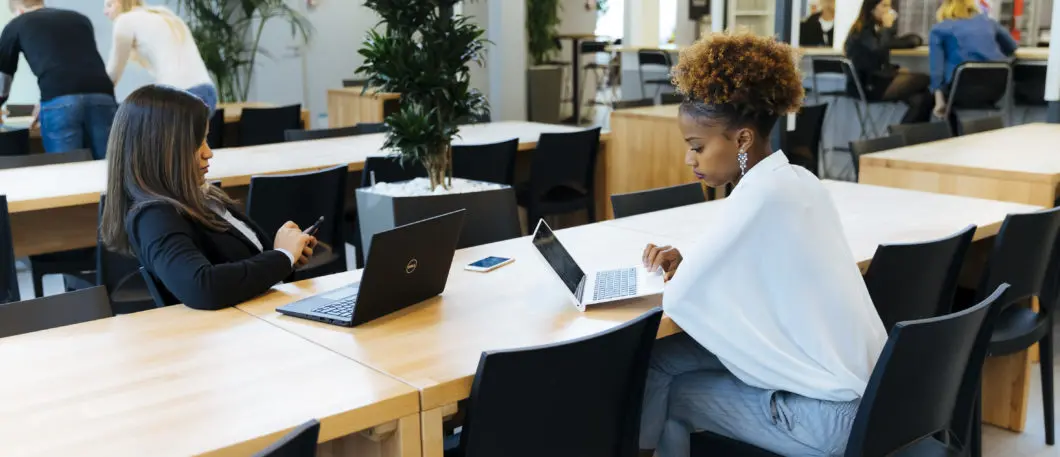
On Monday, 9 October, the 2017 Nobel Prize in Economics was awarded to American Richard H. Thaler, a professor at the University of Chicago, for his work on the psychological and social mechanisms involved in consumer and investor decision-making. His work studies how certain human characteristics and social preferences limit the rationality epitomised in the concept of homo economicus. Montpellier Business School professor Laurie Balbo, who for several years has taught a course on ‘Consumer behaviour and psychology’, sheds lights on this hot topic in economics.

What is Thaler’s work about ?
Richard H. Thaler is known for theorising the concept of ‘mental compatibility’, which explains the tendency of individuals to divide their money into different mental accounts based on a variety of subjective criteria, such as the money’s source or destination. His work shows that individuals assign different functions to each mental account by concentrating on the individual impacts of each decision, rather than on the overall effect.
Can you illustrate the concept of ‘mental accounting’ with an example ?
Yes, of course. You’re going to buy a €20 ticket for a show, and while you’re waiting in line, one of the two following things happens: 1) You lose the €20 you had in your pocket, or 2) You buy the ticket but lose it before getting inside. In these two cases, assuming you still have enough money, would you buy another ticket to the show?
If you act logically, your answer in both scenarios should be the same. The question is whether you’ll spend €20 more to see the show. However, because of the existence of different mental accounts, as a general rule, the decision isn’t the same for each scenario. In the first scenario (where you lose €20), most people don’t think of the lost €20 as part of their mental account for ‘entertainment’, because they still haven’t spent it or assigned it to that account. So they’re more likely to buy another €20 ticket to the show. By contrast, in the second scenario, the money had been spent and hence added to the mental account for entertainment. So they’re less likely to buy a new ticket.
Thaler is also known for his work on the ‘Nudge’, right ?
Yes. In fact, Thaler is one of the founding fathers of Nudge theory, which he put forth in an essay co-written in 2009 with Cass Sunstein, a professor of law at Harvard University. In this work, the authors advocate a form of ‘soft’ intervention, otherwise known as ‘liberal paternalism’: individuals remain free to choose but are encouraged to take one path instead of another by exposing them to a carefully studied and developed ‘architecture of choice’. For example, Amsterdam airport, in the Netherlands, got the idea to put stickers in the shape of flies at the bottom of urinals, in order to encourage men to use ‘good aim’ and reduce the costs of cleaning the toilets. It has to be said, projections fell by 80% !
The Nudge is based on the idea that if individuals aren’t able, because of their ‘cognitive biases’, to make the decisions that are best for them, their choice should be guided to help them.
How do you talk to MBS students about Thaler’s work ?
In all the courses I teach at MBS, I strive to convey to students the results of research papers either in ‘theoretical’ courses or in projects that the students work on. For example, in the PMGE M2 and MSc course in marketing entitled ‘Consumer Behaviour and Psychology’, students in previous years have taken part in the Nudge Challenge, organised by Nudge France, to encourage environmentally responsible behaviour. In 2015, for the ‘COP21’ edition of the challenge, an MBS team took home the award for the most liked video on Facebook! In 2016, with the theme ‘Paris 2024’, a group of MBS students were among the 16 challenge finalists who travelled to the capital to defend their idea in a pitch. This year, because of the timing of the challenge, we couldn’t participate, but all my courses address Nudge theory from various angles.
Nathalie Benesti – Grande Ecole Programme through the VAE
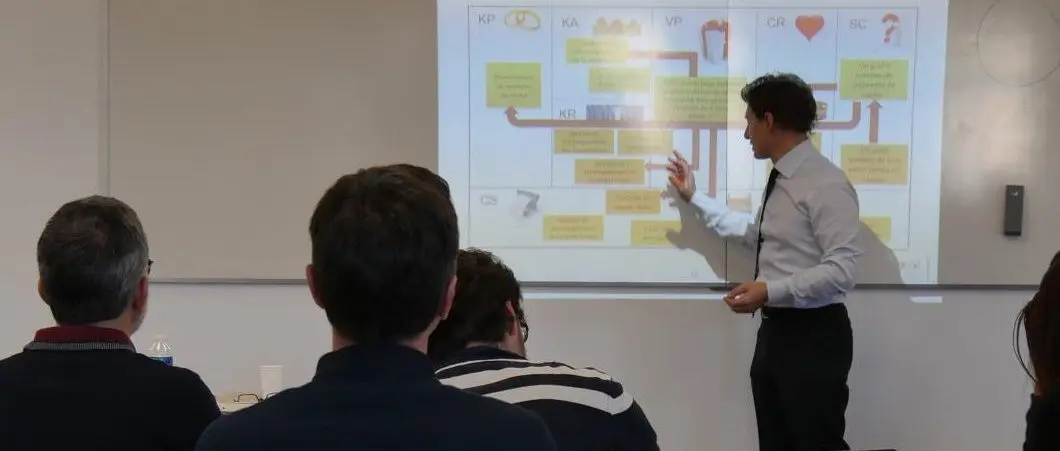
Nathalie Benesti, Ile-de-France Operations Director and France Customer Experience Manager at American Express Business Travel
”Holder of a BTS in tourism, I started my career as a travel agent before moving on to a director’s position. Given the profound transformation that the business travel industry is going through today, I felt the need to validate my 25 years of experience to strengthen my legitimacy. The choice of Montpellier Business School was a natural one because I was attracted by the spirit of innovation and entrepreneurship, as well as the concrete approach of the school.
With the assistance of a coach, I have compiled a file presenting the projects dealing with strategy, marketing and finance among others. This exercise allowed me to see the extent of my skills. My professional development is not down to chance!
On a personal level, I have gained in serenity and all my life I shall remember my pride on the day of the announcement of the full validation of my skills unanimously and, icing on the cake, the congratulation of the examination board.
My area of responsibility has expanded. I am solicited to participate in debates and conferences. Thanks to the personal work carried out within the framework of the VAE, I collaborate with the HRD on training plans. It’s a new challenge!”
Mallaury, student from Montpellier BS, tells us about her first year of Bachelor and gives advices to future candidates
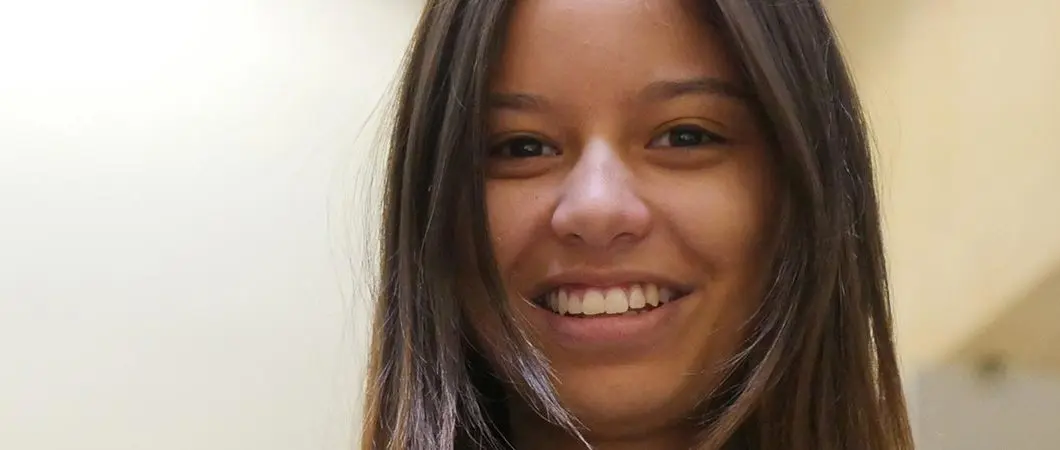
After doing her schooling in Carcassonne, Mallaury Franc, 19 years-old, is one of the 180 students who have joined the Bachelor of International Business Administration programme (BIBA) of Montpellier BS this year. With a strong international orientation, which the aim is to train the future manager the best way, by providing them transferable skills, the programme leads to a Bachelor degree. The student has kindly agreed to share with us the highlights of her first year at Montpellier BS and her memories about the written and oral entrance exams !
« I loved my first year at Montpellier BS! » Mallaury begins. « Of course, no one can avoid the stress of the week before the exam (laughs) but we have a lot of team work and it forces us to study and build our team working skills at the same time! I also joined a student association, Living In Montpellier, which helped me to open myself to others. I am vice-treasurer and we also launched a new application. It requires a lot of investment but it’s great when you see the results, and it is very rewarding on a CV ! »
« Even before joining the school I wanted to enter a Business School », she says. « My advice is to visit forums because that is how I met students from Montpellier BS who gave me some advices! After that, I sent my application to Montpellier BS and then I did my oral exam. Above all, don’t be afraid because the jury will put you at ease.
« I would like to tell future candidates to try to manage their stress. Personally, when I was in high school I managed it through dance. It allowed me to channel myself, to be more independent and to gain self-confidence. Extracurricular activities are very important, it makes you evolve. I encourage you to practice any kind of activity outside school because it can only be beneficial to you », she adds.
After her second semester exams, she will do a 2 or 3 months internship starting in May in the banking / finance sector according to her wishes. This will be her first internship and she wants to gain work experience that will be beneficial for her future career.
“I always liked watchmaking, but it’s become a real passion.” 2013 Bachelor’s graduate Eleonore Degani is International Social Media Coordinator at Tissot in Switzerland
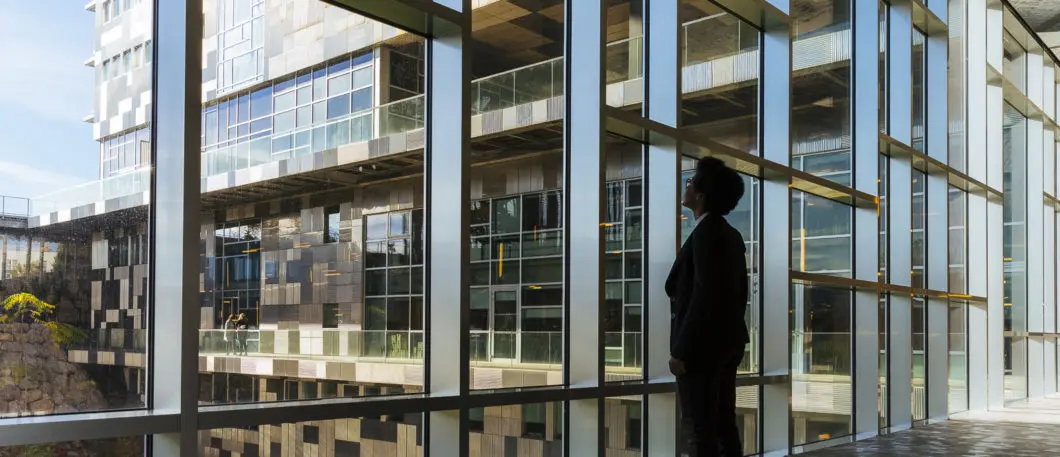
At the age of 26, Eleonore found her niche at renowned Swiss watchmaker Tissot. She came across the company on an internship in the third year of her Bachelor’s degree at MBS and went back as soon as she graduated. Social networks, the digital environment and travel are part of her everyday life — what, we asked her, does the position of International Social Media Coordinator involve?
Since 2013, Eleonore’s life has been as synchronised as a Swiss watch. But not just any watch. Eleonore works at Tissot, the world leader, in terms of volume, of the traditional Swiss watchmaking industry, and the flagship brand of the Swatch Group.
“Between September 2011 and August 2012, my third-year Bachelor’s internship was going very well and Tissot offered me a permanent contract. I turned it down to finish my studies at MBS, but ended up rejoining Tissot as soon as I graduated, when they offered me a marketing assistant position. I didn’t hesitate long because watchmaking was already something I was interested in, but it became a real joy during that internship,” recalls Eleonore. “From the start, I was in charge of the social networks, because at the time that kind of media wasn’t yet a part of the basic marketing strategy. Naturally, there was a lot to do. Now I supervise the 14 local Facebook pages and manage the Twitter and Instagram accounts on a daily basis. In total, on all platforms, we have a little more than 2.2 million followers worldwide.”
As full-time Social Media Manager since December, Eleonore is experiencing the digitisation of her company from the inside. “Everything is being digitised, and you can see that in the advertising budgets. The future is in digital communication. Plus, what’s particularly interesting about what I do is that I’m getting familiar with the community of Tissot fans and knowing in advance what kind of post will be successful or not. Our fans like our watches most, but they’re also interested in our sports partnerships, so I try to find the best way of communicating everything on our various social media platforms.”
And it’s because of those partnerships that Eleonore has the opportunity of travelling around the world and meeting celebrities from the sports world. “It’s non-stop! We have several sports ambassadors, including basketball player Tony Parker and triple MotoGP world champion Jorge Lorenzo, and we’re Official Timekeepers in a range of sports: cycling, with the Tour de France; basketball, with the NBA, CBA and FIBA; various rugby championships, such as RBS6 Nations, Top 14 and EPCR; and also all the MotoGP races. It’s very time-consuming and my phone is permanently attached to my hand because there’s always something to post, someone to congratulate, a product launch to manage or a new record time to announce. You have to accept that you’ll put 200% into your job, and in the end it’s a little like a sport for me too,” she jokes.
“It’s very time-consuming, but there are some really good sides because I’m working in a sector that fascinates me, one with a strong international aspect. For me, the medium-term goal is to get more involved with the photo shoots for our social networks a little more,” she concludes.
Our thanks to Eleonore for this testimonial. Visit Tissot’s social media sites to see what she’s been up to.
